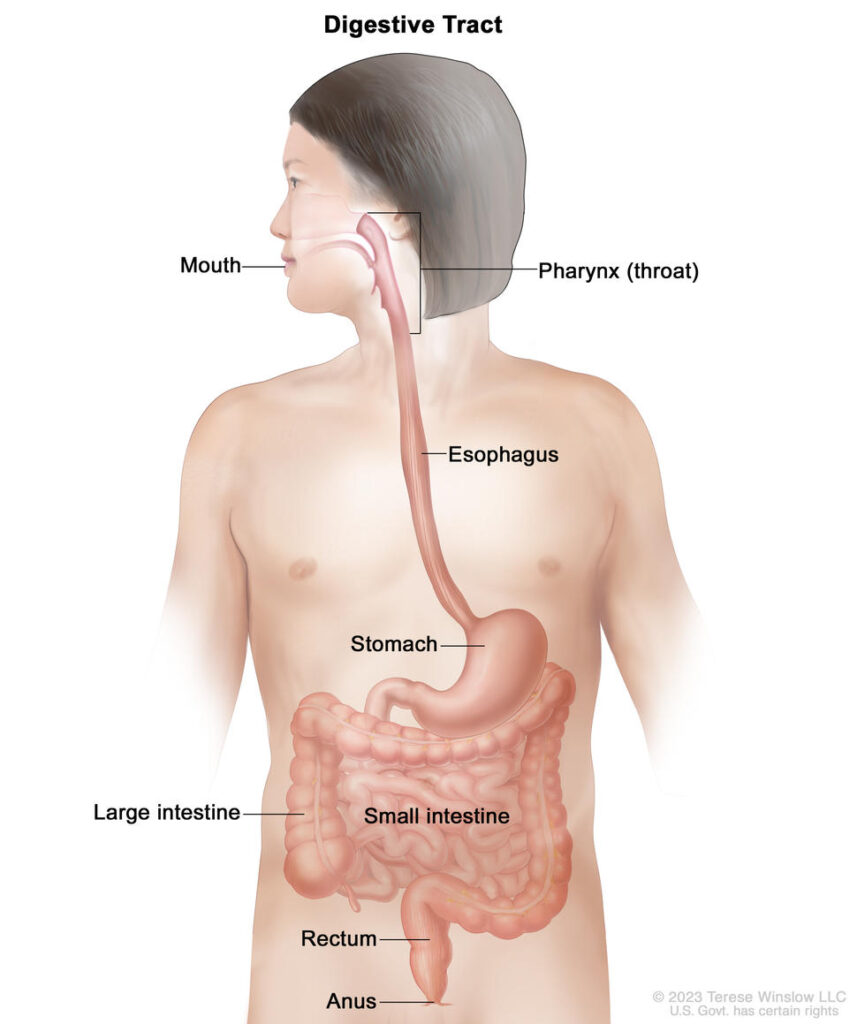Stomach Cancer
Stomach cancer, also known as gastric cancer, is a type of cancer that begins in the lining of the stomach. It is a relatively uncommon cancer, but it can be aggressive and is often diagnosed at an advanced stage. Here are some key points about stomach cancer:

- Types of Stomach Cancer:
- Adenocarcinoma: The most common type, accounting for the majority of stomach cancer cases. It begins in the cells lining the innermost layer of the stomach.
- Lymphoma: This type of stomach cancer begins in the immune system cells of the stomach lining.
- Gastrointestinal stromal tumor (GIST): A rare type of stomach cancer that begins in the cells of the stomach wall.
- Carcinoid tumors: These tumors are rare and begin in the hormone-producing cells of the stomach.
- Risk Factors:
- Infection with Helicobacter pylori: This bacterium is a major risk factor for stomach cancer and is also linked to peptic ulcers.
- Age: Stomach cancer is more common in older adults.
- Gender: Men are more likely than women to develop stomach cancer.
- Tobacco and alcohol use: Both smoking and heavy alcohol consumption increase the risk.
- Diet: A diet high in smoked, pickled, or salted foods, and low in fruits and vegetables may contribute to the risk.
- Family history: Individuals with a family history of stomach cancer may have an increased risk.
- Certain medical conditions: Conditions such as pernicious anemia, atrophic gastritis, and certain inherited syndromes may increase the risk.
- Signs and Symptoms:
- Early-stage stomach cancer may not cause noticeable symptoms.
- Symptoms may include abdominal pain or discomfort, bloating, difficulty swallowing, unexplained weight loss, nausea, and vomiting.
- Diagnosis:
- Diagnosis involves a combination of medical history, physical examination, imaging tests (CT scans, PET scans), and endoscopic procedures (esophagogastroduodenoscopy or EGD).
- Biopsy samples are taken during endoscopy to confirm the presence of cancer and determine its type.
- Staging:
- Staging helps determine the extent of the cancer and guides treatment decisions.
- Treatment Options:
- Surgery: Surgical removal of the cancerous portion of the stomach (partial gastrectomy) or the entire stomach (total gastrectomy) is a common treatment.
- Chemotherapy: Using drugs to kill cancer cells or stop their growth.
- Radiation therapy: Using high-energy rays to target and kill cancer cells.
- Targeted therapy: Medications that specifically target certain proteins involved in cancer growth.
- Immunotherapy: Treatment that stimulates or enhances the body’s immune system to recognize and attack cancer cells.
- Survival Rates:
- Prognosis varies based on factors such as the type of stomach cancer, stage at diagnosis, and response to treatment.
- Stomach cancer is often diagnosed at an advanced stage, which can impact survival rates.
- Challenges in Treatment:
- Stomach cancer treatment can be challenging due to the potential impact on digestion and nutritional intake.
- Early detection is crucial for better treatment outcomes.
- Prevention:
- Treating Helicobacter pylori infection when present.
- Adopting a healthy diet that includes a variety of fruits and vegetables.
- Avoiding tobacco and limiting alcohol consumption.





